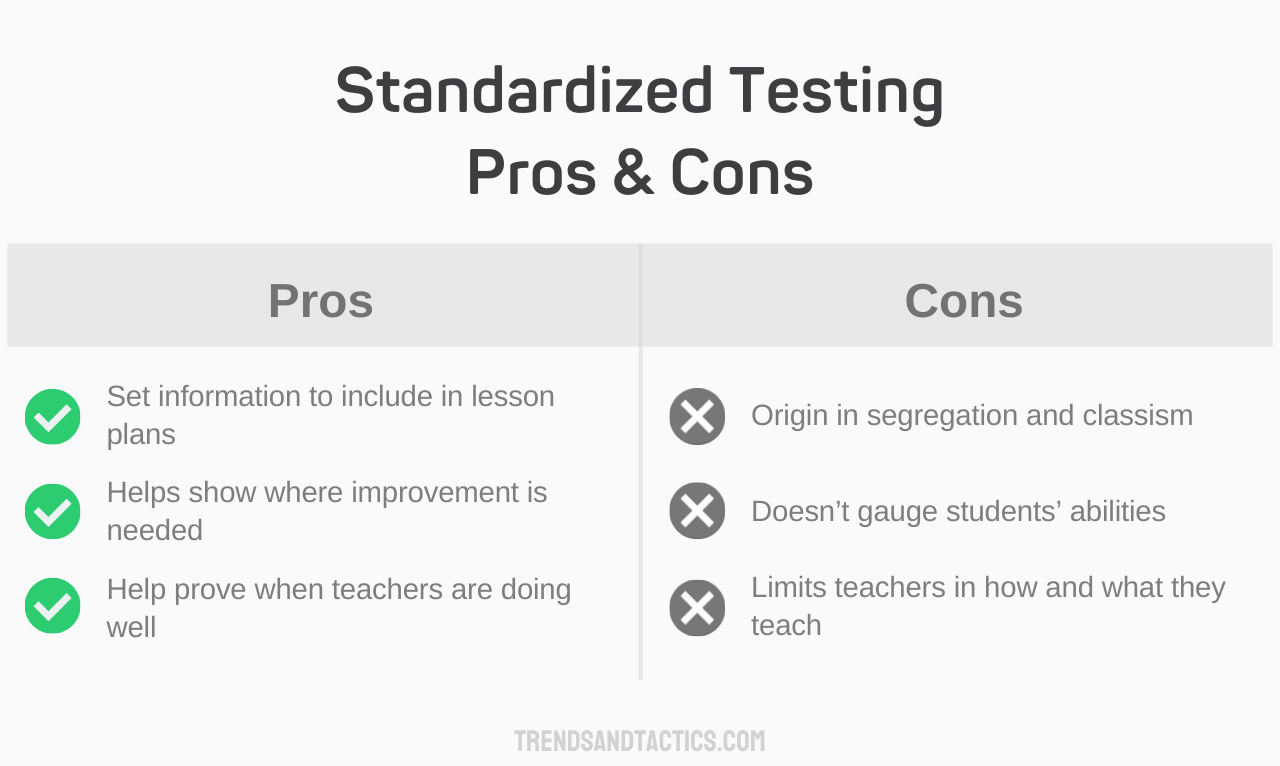Every job has a fair share of pros and cons, and although most of the time it comes down to things like coworkers and office drama: the pros and cons of being a teacher are in a league of their own.
This job could put anyone through a rollercoaster of job satisfaction, from how your work is scored to the fantastic feeling of helping educate students.
These are some of the best benefits of teaching and things that teachers can’t stand about our job!
Pro: The Chance to Help Develop Minds

Although some may think this is disingenuous, having the chance to help shape minds and create an excitement for education is one of the most rewarding feelings as a teacher.
This isn’t just for students who come in prepared to learn but also students who are standoffish in the beginning and then get excited as they catch onto the information they’re learning.
If you can instill an excitement for learning in students, their successes throughout their lifetimes become yours. Education will always be a necessity, making teaching one of the most popular future proof jobs.
Every classroom is full of potential, and by teaching, you help them realize what they’re capable of. This isn’t measurable in any way, but it’s incredibly rewarding.
The only way to do this successfully is if you’re passionate about the job and know how to connect with your students.
Tactic for Success
If you want to connect with your students and help them learn, it’s important to be authentic and show that you’re invested in their education and growth. Avoid talking down to them or embarrassing them if they get anything wrong, but don’t be a pushover.
Pro: Working With a Team of Fellow Teachers
In many careers, you can feel isolated. Some who want to work in teams may ask, “Is becoming a teacher worth it?” because we’re alone with students for teaching periods, but as a teacher, the staff around you is your team.
Your coworkers who share students with you can discuss what works with them with struggling individuals, or you can gain knowledge from teachers who have been in the field for longer than you.
Every school is full of educators in various stages of their career, and getting to work with each of them, gain knowledge from them and pass on your own, ensures that you keep learning and growing in this role.
When the school succeeds, it’s as a team. This builds a sense of community that’s hard to find in many jobs and is so rewarding as a teacher.
Use these tips for finding a job to help you start your career and join your own inspiring team of educators.
Trend on the Rise
Over 81% of people want to work on a team or have collaboration available in their job. This is awesome if you go into teaching because it allows you to work with dozens of others in your field every day.
Pro: Taking Summers and Major Holidays Off

In many jobs, you’re lucky to get two to three weeks of vacation time a year, and even then, you have to struggle to schedule it and get that time off.
As an educator, you’re guaranteed your summers and holidays off. This means time you can spend with family and invest in your other hobbies and interests.
This time can also be used to earn some extra cash with a side job. Check out these jobs for former math teachers or alternative jobs for teachers to give you some ideas on how to utilize your teaching skills during this time off.
Although teaching is a lifelong career for some, many have used it as a springboard to get where they want to go.
A surprisingly large number of singers like Sheryl Crow, actors like Hugh Jackman, and writers like Stephen King started as teachers, using their long vacations to invest in their dreams.
These long breaks can also allow you to invest in yourself by taking summer classes or traveling abroad between semesters.
Jobs With the Most Days Off
- K-12 Teachers – Teachers generally get weekends, summers, two weeks in winter, one week in spring, and bank holidays off
- Pilots – In this position, you can’t work more than seven consecutive days, or 100 hours, in any calendar month
- Firefighters – In this role, firefighters generally have ten hours on call and then fourteen hours off for every shift
- Librarians – School librarians often have similar schedules to teachers
- Air Traffic Controllers – Air traffic controllers have to have at least one full day off every week and limited work hours per week
Pro: Predictable Job Security
If you want a job that offers stability, there’s nothing better than working in education. It may not make you a millionaire, but an education degree is one of the best degrees to make money if consistency is important to you.
Your salary and schedule are two predictable things, and if changes come, you’ll be alerted to this far in advance.
Even during COVID-19, although the beginning was rough and moving to digital classes was a large transition, teachers knew their jobs were guaranteed.
Few careers can offer this, which many people found when they were laid off or fired during the pandemic.
As a teacher, your job is guaranteed as long as you want it and can do it well.
Trend on the Rise
Many teachers can use their breaks to invest in their other hobbies! Almost a third of teachers take on second jobs to either supplement their incomes or to work in the career they want to end up in.
Con: Salary Isn’t Great And Doesn’t Grow Quickly.

Unfortunately, teacher salaries start low, grow slowly, and are generally the largest complaint in this field.
Being salaried may sound nice, but unfortunately, it means that you don’t get overtime for all of the work you do outside of teaching: and there’s so much work that teachers do during the week.
The average teacher spends nearly fifty hours a week working, while many push that up to sixty hours a week if they have homework-intensive classes or spend extra time setting up projects and assignments.
There’s no overtime, and although you put your all into it, some salaries don’t even rise to count for inflation.
Although the FEA and legislators have pushed to raise teacher salaries in recent years, due to worsening working conditions and inflation, this type of legislation takes forever and isn’t guaranteed to pass.
Pay Expected By School Level
- Elementary School – Average $47,848 per year (Payscale)
- Middle School – Average $49,531 per year (Payscale)
- High School – Average $63,301 per year (Payscale)
Con: Standardized Testing Results Matter Most
Standardized testing is the largest thing many schools expect their teachers to focus on. Yet, many educators question test-based education and feel that it isn’t the best way to teach.

Every class and student is different, yet test scores are often assumed to have a strong connection with how effective a teacher is, regardless of how well the test is made or what the students learned.
This can place good teachers in hot water, despite doing their best and working hard with their students. On the students’ side: it’s not helping them either.
Instead of instilling an interest in learning and a fully rounded understanding of a topic, they often turn into ‘fact memorizers’ who don’t understand the why or the significance of what they’re learning- just that they have to know it.
Con: Administration, Parents, and Teachers Don’t See Eye to Eye
The largest complaint from teachers, besides the salary, is the lack of good communication in their job.
Parents tend to side with their children because they’re only getting one side of the story, and this can place educators in hot water even if they’re doing their job well.
Beyond this, the administration isn’t always receptive to teachers’ needs.
It can be incredibly frustrating and invalidating, from unannounced observations to ‘constructive criticism’ from someone who doesn’t teach and has only watched you teach once or twice.
Of course, not all administrators are like this, and it’s better if you’re able to form a good working relationship with them, but it can be a real negative to this job.
Although having a student who acts up or purposefully disrupts class can be frustrating, they’re far easier to deal with, and you have a semester to work with them.
Parents and administration can become a frustration that you have no way to work on or solve.
Tactic for Success
You’re not customer service as a teacher, although sometimes it can feel like that. Listen to concerns from parents, be respectful, but be honest about how and why they see the results they are, or you teach in a specific way.
Con: Professional Development Days and Staff Meetings
Some may assume that any day a student is off school, their teachers are too: but many days off are development days.
Beyond this, teachers also often stay after school for development meetings to work together as a team.
This is more time than you have to devote to your job, and if you have a child currently in school, it can be frustrating that your schedule doesn’t get to align with theirs.
Often these development days and meetings can feel like topics that could have been covered in an email, which can add an extra annoyance.
Wrapping Up
Whether you’re considering becoming a teacher because you want to help mold future minds, or you want to score summers and holidays off- this job can come with a lot of baggage.
But if you’re up for it, you’ll never find work that’s more rewarding than this.
Erin is a business teacher and mother of three. When she’s not in the classroom or fulfilling her obligations as an A+ hockey and lacrosse mom, she’s working on her latest article.






